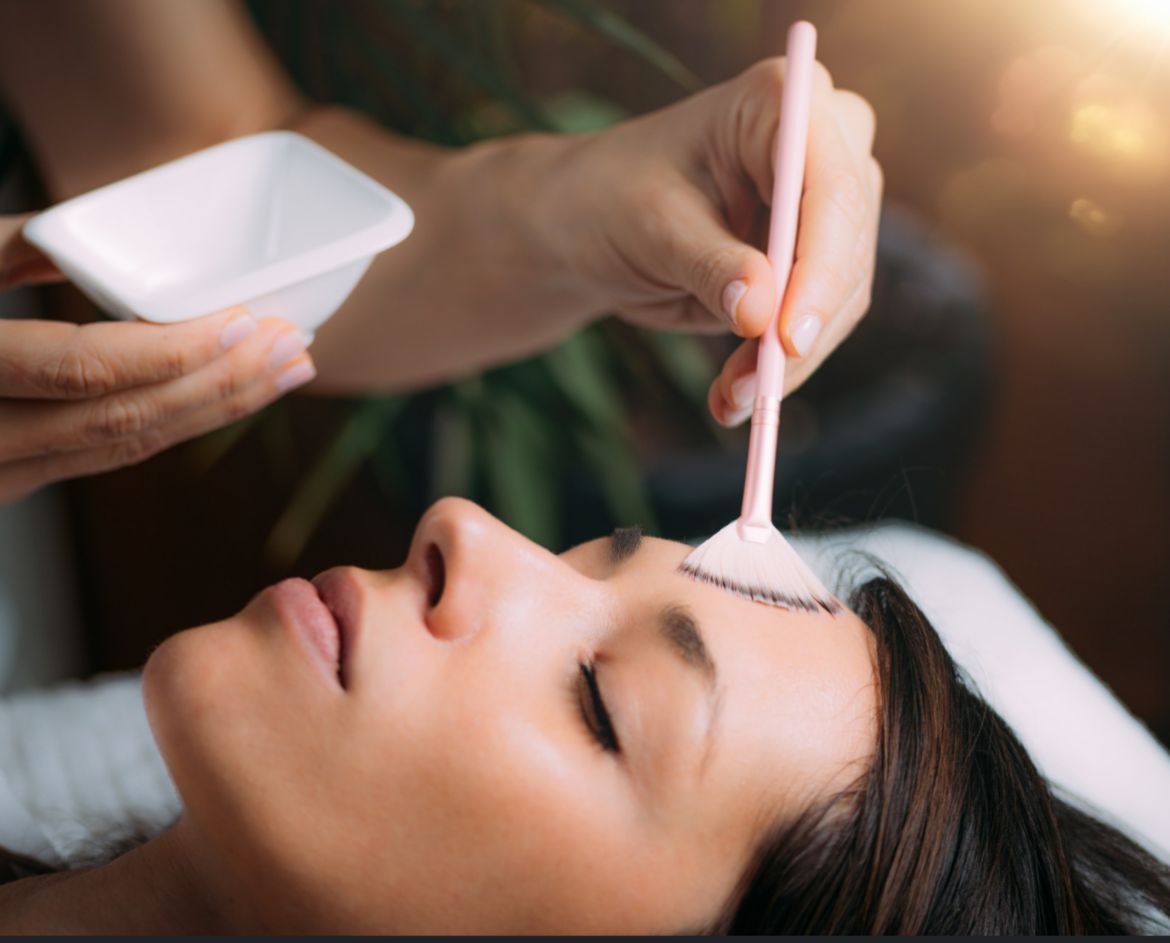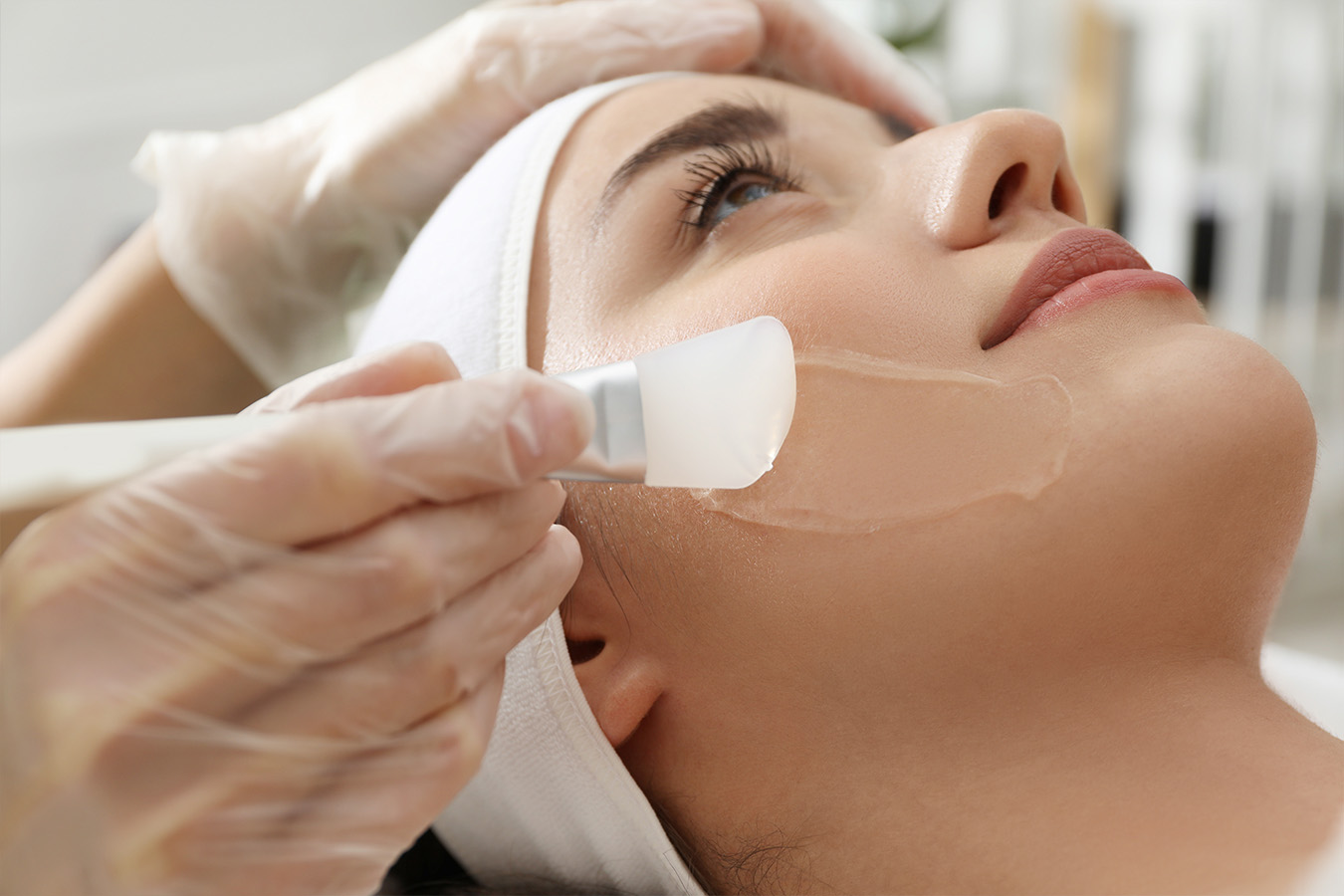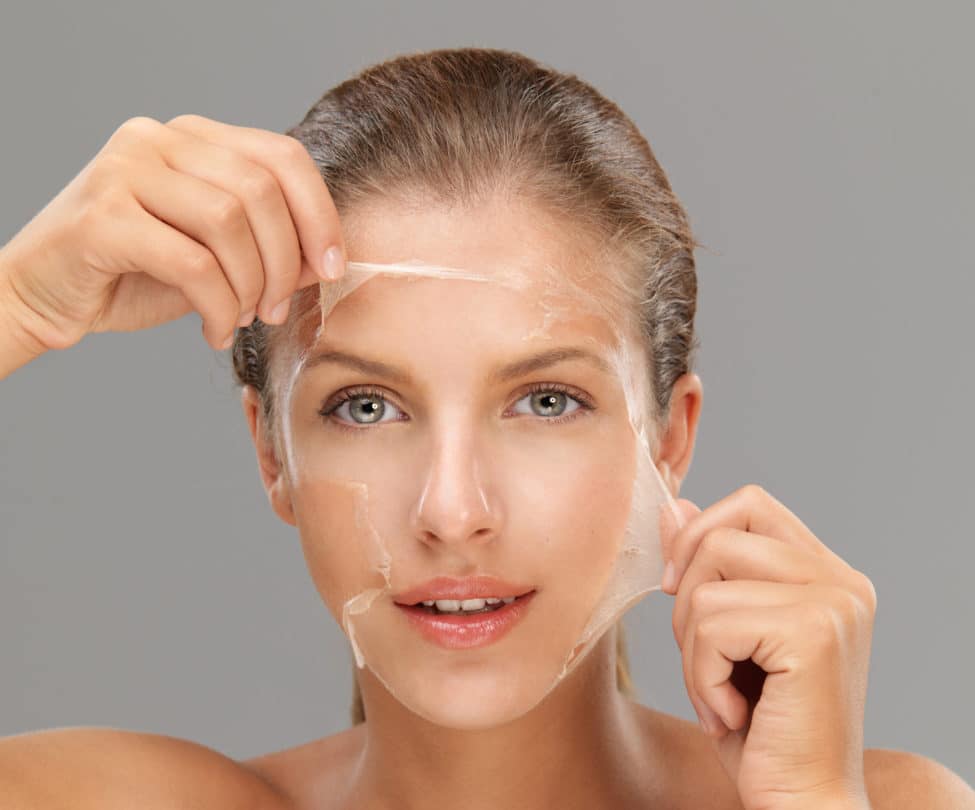Chemical Peel

Chemical Peel?
A chemical peel is a cosmetic treatment that involves applying a chemical solution to the skin to exfoliate and remove dead skin cells. This process stimulates cell regeneration, revealing smoother, brighter, and younger-looking skin. Chemical peels can treat various skin concerns, including acne scars, hyperpigmentation, fine lines, and uneven texture.
Types of Chemical Peels
1. Superficial Peels (Light Peels) Uses mild acids like alpha-hydroxy acids (AHA) or beta-hydroxy acids (BHA) (e.g., glycolic acid, lactic acid, salicylic acid).
Targets: Mild acne, dull skin, slight discoloration.
Downtime: Minimal; slight redness or flaking for a day or two.
Frequency: Can be done every 2-4 weeks for maintenance.
2. Medium Peels Uses stronger acids like trichloroacetic acid (TCA) or higher-strength glycolic acid.
Targets: Acne scars, hyperpigmentation, fine lines.
Downtime: 3-7 days; skin may peel and be red.
Frequency: Every 3-6 months, depending on skin needs.
3. Deep Peels Uses phenol or high-concentration TCA.
Targets: Deep wrinkles, severe sun damage, precancerous growths.
Downtime: Can take 2-3 weeks for full recovery; requires medical supervision.
Frequency: Usually a one-time treatment with long-lasting results.


How Does a Chemical Peel Work?
- Skin Cleansing: The skin is thoroughly cleansed to remove oils and debris.
- Application of Acid Solution: A chemical solution is applied evenly to the skin.
- Controlled Exfoliation: The acid penetrates the skin, breaking down dead cells and stimulating renewal.
- Neutralization & Soothing: The peel is neutralized (if needed), and soothing agents are applied.
- Post-Treatment Care: Hydrating serums and sunscreen are applied to protect the skin.M/li>
Benefits of Chemical Peels
Brightens & Evens Skin Tone: Reduces dark spots and hyperpigmentation.
Improves Texture: Smooths rough or uneven skin.
Reduces Fine Lines & Wrinkles: Stimulates collagen production for anti-aging benefits.
Treats Acne & Acne Scars: Helps clear breakouts and fade scars.
Unclogs Pores: Reduces blackheads and minimizes pore size.


Who Should Avoid Chemical Peels?
- Those with active skin infections, open wounds, or severe rosacea.
- Individuals who have used isotretinoin (Accutane) in the last 6 months.
- People with a history of keloid scars or very sensitive skin.
- Pregnant or breastfeeding women (consult a doctor before treatment).
Post-Treatment Care & Side Effects
- Redness & Peeling: Normal for a few days, depending on peel strength.
- Avoid Sun Exposure: Use SPF 30+ daily to prevent pigmentation issues.
- Hydrate & Moisturize: Keep the skin well-moisturized.
- No Harsh Skincare: Avoid retinoids, exfoliants, and strong acids for a week.


How Often Should You Get a Chemical Peel?
Light Peels: Every 2-4 weeks for maintenance.
Medium Peels: Every 3-6 months for deeper concerns.
Deep Peels: Typically once in a lifetime or as recommended by a dermatologist.
